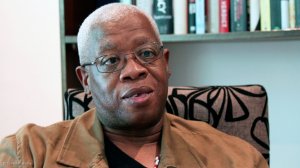The year began with two rows on foreign policy. The first was about a visit to Taiwan by Solly Msimang in his capacity as the executive mayor of Tshwane. The second, which riled the African National Congress (ANC) even more, was about a visit to Israel by Democratic Alliance (DA) leader Mmusi Maimane.
Essentially, the two rows are not about foreign policy; they are about the changing balance of political power between the ANC and the DA. In addition, these foreign policy rows betray the existence of a tension between the ruling party and the official opposition, partly ideological, over South Africa’s position and positioning in international relations.
While there is some agreement between the ANC and the DA about the fact that a commitment to democracy and human rights is critical, there are very deep disagreements between the two parties about what this means. For instance, the ANC has what is, at best, an ambiguous orientation towards Western countries, while the DA falls very firmly within the Western sphere of influence.
In part, the orientation of the ANC towards the West was shaped by the orientation of Western countries towards the ANC during the liberation and antiapartheid struggle. When the ANC went into exile after it was banned, Oliver Tambo approached Western countries for support, to no avail. It is partly for this reason that the ANC became part of the Soviet sphere of influence, a sphere of influence that, in the context of the Cold War, attached itself and gave support to liberation and anticolonial struggles.
For their part, the DA’s ancestors were antiapartheid but theirs is an ambiguous legacy when it comes to their aversion to radical change and militant anticolonial struggles against white minority rule. Maimane’s visit to Israel is a product of this ambiguous legacy.
The ANC positions itself as a part of the historical mission of freeing the Palestinian people from Israeli occupation in the context of the two-State solution. The ANC regarded, and still regards, the Palestinian people as allies of a South African people that was oppressed during apartheid – hence, the anger towards Maimane, whose visit to Israel is an indication of what we can expect if the DA becomes the ruling party of our country. A DA government will fall in line with the logic of Western power and influence, and will try to maintain relations with both China and Taiwan. It will explain its position in terms of the imperative of defending human rights while it simultaneously displays some sensitivity to the need for maintaining economic relations with China.
The problem for the ANC, in addition to shifts in the electoral balance of support, lies in the fact that, under the leadership of Nelson Mandela, the ANC government could defy Western countries when it came to relations with countries such as Libya and China. Mandela told former US President Bill Clinton to go jump in a lake when Clinton questioned South Africa’s relations with Libya. Mandela could do this because he had oodles of moral authority, a quality that the ANC lacks today.
But what the DA will discover if it ever becomes a government is the fact that not all the dubious foreign policy choices of the ANC government are a function of a decline in the moral content of the ruling party. International relations and foreign policy are a very messy business that entails the management of contradictory interests and impulses. The DA will also discover that it is the realist conception, not the idealist conception, of international relations that tends to inform foreign policy choices. More important for me, however, is the fact that, in international relations and foreign policy, the moral high ground is a vacant plot. No country, including those that scream human rights and democracy the loudest, is an occupant of the moral high ground.
Lest I be misconstrued, tensions over foreign policy choices do not always take the shape of conflicting positions between the ANC and the DA. One of the things that divide the ANC is the East-West fault line. The DA and, in all probability, the majority of white people, regard the West as the true North. The fact that President Jacob Zuma is flirting so heavily with Russia and China is a problem to them. The DA’s political and ideological instincts may be to retreat from Brics bloc of Brazil, Russia, India, China and South Africa if it ascends to the position of ruling party. But inside the ANC itself, there may be some sympathy for such a position because embedded in perceptions and the reality of State capture and the looting of State and national resources is another perception – that Zuma has made our country available for capture by Russia and China, while his detractors want to make it available to Western interests.
EMAIL THIS ARTICLE SAVE THIS ARTICLE ARTICLE ENQUIRY
To subscribe email subscriptions@creamermedia.co.za or click here
To advertise email advertising@creamermedia.co.za or click here










